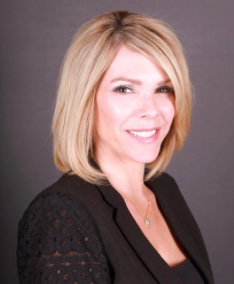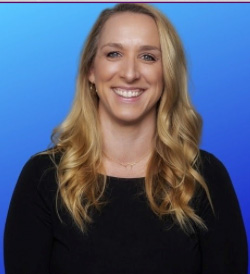
By Mike Kilen
GCU News Bureau
It can be tough for women in male-dominated fields of science, technology, engineering and math, whether facing workplace microaggressions, slights in meetings or lack of promotions.

But some challenges are internal, said Marlys Rodgers, Chief Information Security Officer and Head of Technology Oversight for CSAA Insurance Group, one of five accomplished female leaders at the virtual “Women in STEM” panel discussion hosted by Grand Canyon University student STEM clubs Wednesday.
At a company where Rodgers formerly worked, she said a male peer acted as if she didn’t understand a project they were working on together because he didn’t want to share credit.
“I’m not going to change him, but I am going to change how much it bothers me, how I deal with some of the microaggressions that take place,” she said. “Over time you have to decide what bothers you and what doesn’t. Definitely with women in technology there is a set of undercurrents I have seen and experienced, but at the end of the day it’s really how you choose to respond to it.”
The leaders offered a bevy of good advice, and it’s just what GCU student club leaders Jessica Padilla (Society of Women Engineers), Kylie Apodaca (Health Occupations Students of America, aka HOSA) and Trevor Baines (Information x Technology) sought in moderating the discussion with the help of GCU's Strategic Employer Initiatives and Internships, Academic and Career Excellence and K-12 Educational Development.
Overcoming self-doubt can be key.

Dr. Melissa Harrison Fortuna, Engineering Manager at Intel Corporation in Chandler, said that early in her career she had “imposter syndrome,” but she soon realized external pressures were feeding that little voice on her shoulder telling her she wasn’t good enough.
“That awareness in itself was key for me to change the narrative, to tell myself something different,” she said. “Everyone has a little bit of self-talk, but it’s really how you respond to that.”
Other key points by the panel: Be unafraid to embrace new challenges, build a group of supportive women and ignore naysayers who question whether women have the skills in male-dominated fields.
Rodgers and Fortuna were joined by Dr. Heather Monthie, former Associate Dean of Technology at GCU and a cybersecurity architect in the aerospace industry; Dr. Joan Connell, a pediatrician who leads the COVID Physician Advisory Group in North Dakota; and Amy Peters, Senior Director of Safety and Mission Assurance at Northrop Grumman Space Systems.
Here are some career tips from each panelist, advice that is good not only for the next generation of female STEM professionals and leaders, but anyone:

Monthie: “Think back to previous leaders you have worked for or you have worked with and reflect on what you liked and didn’t like about their leadership styles. And then try to come up with your own leadership style. That is something that will evolve over time as you work with more people.”
Connell: “I think it’s really important to surround yourself with strong people and with smart people who help you become stronger.”
Fortuna: “If you take ego out of leadership and focus on the work and the people, you can’t go wrong. Ego all the time is what steers us wrong. You can’t do it for the title, you can’t do it for the money, you can’t do it for however it might serve you. Focus on the work. Focus on the people.”

Peters: “Find a mentor you can chat with. It doesn’t have to be formal … ‘Hey, I’m looking for some advice.’ It can grow into a mentorship. Also, get to know people around you. Build relationships. You are going to get know about them and them about you, and when you are in a situation where you need help, advice or a team, they are going to be the people you call on because you have established these relationships. Last one, join projects. It shows you are willing to help and willing to grow and learn.”
Rodgers: “So much of the interaction of this generation today is passive. It’s more texting and less verbal. And a lot of what we are talking about in terms of what this leadership panel is offering really focuses in on interpersonal skills. I would encourage you to work on effective communication and effective confrontation skills because so much of where you get to as a female leader is you can have direct conversations with people. It’s never going to work if you send it passively through texting and emails. It really takes a lot of practice.”
Grand Canyon University senior writer Mike Kilen can be reached at [email protected] or at 602-639-6764.
***
Related content:
GCU Today: Honors STEMists construct wheelchairs for clinic
GCU Today: Honors College, Brewers knock STEM out of the park



































































